|
The sorcerers from Twin Peaks you say? This has got to be one of the more audacious spectacles I've seen in a minute. Really doesn't spend too much time establishing the world, opting instead to just immerse the audience in this gonzo sci-fi fantasy epic that oscillates between segments set in contemporary Korea and the 14th Century. Frankly, it's impressive how coherent this narrative ends up being while keeping the audience completely torn between consistent intrigue and titillating spectacle. I particularly enjoyed the sequences set in past where wonderfully inventive action sequences and silly comedic bits reminded me of Kung Fu Hustle. The world and circumstance that Alienoid establishes is ripe for further exploration. The basic schematics and expectations are established yet Alienoid's grandiose nature makes this film nimble, with expansion of the world and stakes free to go in a myriad of thematic and/or narrative directions. Will watch the sequel.
0 Comments
An intriguing time-capsule of a specific time and place in New York City, Saturday Night at the Baths is a social conscious relationship drama that aims to deconstruct heteronormativity and the pervasive ways it informs the social parameters of acceptability when it comes to idealized masculinity in our culture. Less explicit than I was expecting in its exhibition of sexuality, Saturday Night at the Baths in a sense feels muted by design in what feels like a calculated decision in order to garner access to a greater audience and more importantly appeal to the predominate social apparatus that defines collective culture - the white, middle-class. Solely lives in a middle-class milieu, Saturday Night at the Baths ostensibly believes that any meaningful change to social status and acceptance of homosexuality much be through the adoption of the middle class. It is quite fun and subversive in how it illustrates how we as a culture place strictures on something as fluid as sexuality, Has some afterschool special vibes, but given the film's approach is a more sensual and wholesome approach to homosexuality than other films of its era, and in a certain sense it feels radical in this decision. There is one scene about two-thirds of the way through the film involving a friendly amateur football game played in the park. It's a competitive display of a game most associated with orthodox ideals of masculinity, and Saturday Night at the Baths utilitzes this association to create one of the film's most entertaining and memorable sequences that had me hooting and hollering
Michelangelo Frammartino's Il Buco is the film so far this year that I'm kicking myself the most for not seeing on the big screen. A stunning work of art, Il Buco wholly embraces a dichotomous way of exhibiting the world. The majesty and wonderment of the elemental purveyed through dichotomous imagery - darkness and light, expanse and intimacy, clarity and opacity - Il Buco bifurcates the images it presents through a rigorous formal arrangement and in doing so the clarity of vision is acutely rendered. Pictorial form ascribes itself to narrative storytelling achieving a richer sense of lucidity. The substance of what we are being shown and that of which we are not seeing coalesce into a nearly transcendental experience. The labyrinthine nature of this specific environment is deeply immersive, and while I didn't find anything about this thematically to be all that distinct or compelling, Il Buco remains a stunning formal and aesthetic achievement, a film which one experiences as much as they observe or analyze and there is absolutely nothing wrong with that.
Miwa Nishikawa's graceful direction serves this redemption story well. An incisive, well-measured examination of rehabilitation that fully recognizes the complexity of assimilation from the carceral social apparatus back into open society. Never overtly saccharine, Under the Open Sky wisely purveys the ex-con re-assimilation into society detached from negative or positive associations of legality. It goes beyond such social constructions into a more sociological approach, displaying how violence and aggression repel meaningful social formations regardless of legality, and how our social natures as human beings are far more rooted in cooperation than antagonization. The anarchic nature of day-to-day life is beautifully rendered, and how polite society's expectations while less structured in many ways, can be overbearing and extremely grating on those who come from the strictly regimented, authoritarian nature of organized crime. Managing to never feel didactic due to this assured, more existential approach to a familiar conceptional motif, Nishikawa's graceful direction is beautifully balanced by Koji Yakusho's layered performance that permeates with pathos, frustration, and aggression. Probably the weakest effort of Nishikawa's oeuvre I've seen to date but Under the Open Sky reaffirms how wonderful Nishikawa is as a purveyor of human emotion, often interrogating drama and social exchange through a lens that looks beyond merely the material or socially constructed directives of living, always reaching towards an existential means of understanding with not a shred of hubris.
Love how this film is anchored by current events but not only specific to one moment. Beautifully observed and formally experimental, Chan Tze-Woon understands first and foremost the cyclical nature of rebellion and repression and the deep-seated tragedy of being in a perpetual state of collective anxiety. The once proud dreams of the elders slowly decay with time; this nightmare - an uncertain future and lack of sovereignty for Hong Kong - is passed down to the next generation to fight this abstraction (the state). Blue Island is well conceptualized, it's pointed but also honest enough with itself to recognize that on absolute to this story is continuous uncertainty. Permeating with pathos, Blue Island is brave enough to recognize that there merely is no end and sight, there is no resolution, but only a continuous, cyclical struggle that may never end for Hong Kongers, their collective identity, and their sovereignty.
The primitive man juxtaposed against the modern man. Masculinity's impulse towards conquest has not evolved it has just been re-contextualized in modernity. Shinji Sômai's Luminous Woman may align with heteronormative expectations of romance, yet the way it purveys the commodification of feminity and its exploitation in modern times through a fascinating prism that contrasts modern gender relations in a patriarchal society with the purely corporeal hierarchy of primitivity is truly fascinating. It could be argued that A Luminous Woman is narratively speaking one of Sômai's more disheveled features but it is also one of his most aesthetically brilliant efforts, and I found this to be thematically enthralling. A film in which Sômai seems intrigued at interrogating the parallels between the natural, primitive world and the manufactured realities of today brought by technological progress, both of which still perfectly align with patriarchal ideals of gender. Luminous Woman ultimately aligns with the more pure nature of the elemental world, one in which a simpler more primitive way of life is away from technology. Women are viewed as objects within any patriarchal framework, and in a sense what Somai suggests is the abstractions of modernity brought by technology and capitalism only exacerbate the exploitation, as it becomes more insidious being not only driven by physical impulse but financial incentivization. I'd be lying if I said I was sure my interpretation is an accurate reading of this film, but I think Luminous Woman is sold short by others on what it's doing beneath the surface of its peculiar love story. What I'm more bullish on is saying that Luminous Woman is Somai's most lavish work I've seen to date, a rapturously expressive piece of cinema that had me constantly in awe. The camera movements, blocking, and framing deployed here by Somai are simply stunning, and from a visual perspective alone I'd consider this thing a near masterpiece. There is a sequence in this film in which two women at the center of a budding love triangle converse over the phone. A simple sequence on paper, but the way Somai constructs it is absolutely god-tier, giving a simple conversation between two women the weight and feeling of existential importance. An immersive, invigorating love story that is simply put, a five-course meal for your eyeballs!!! The opening sequence of Tiger Cage is one of Yuen Woo-ping's greatest feats as a director. A prolonged opening chase sequence featuring kinetic action, exhilarating fight choreography, and breathtaking stunt work. The action is as clean and visceral as one would expect, but how Woo-ping uses space beyond merely staging wonderful fight sequences is what stood out for me. The schematics of the urban arena designed for the flow of bodies are accentuated. Staircases, urban walkways, and rooftops are all agile ways in which these characters traverse the urban arena. Bodies flow from space to space, and the general formal style and cinematic grammar reach toward a familiar feeling of urban abstraction. From this exhilarating opening sequence of gunplay and fluid fight choreography, the film slows down a bit, taking on a gritty police procedural framework that retains a mean streak from start to finish. Tiger Cage is one of those Hong Kong films in which one realizes quickly the heroes of this story are not beyond approach. Many of the good guys will die at the hands of the bad guys. Corruption exposes how the moral code of an individual always supersedes socially constructed codes of behavior like legality, and Tiger Cage provides an exhilarating tableau of alternating allegiances. A violent corrupt cop crime story that leans into the macabre and brutality, Tiger Cage is cynical but I wouldn't call it outright nihilistic, in the denouement good triumphs and morality and legal justice align and prevail.
It may be a facile observation but in many ways, Frownland is proto-Safdie brothers, or at least a precursor to the formal style and veering cadence the Safdies would embody and expand on. Frownland's main character is a socially inept man who struggles to be heard by anyone and everyone around him. He is a endless loop of stopping and starting, he seems incapable of finding the right words. He is a feedback loop of one due to what can only be perceived as severe social anxiety. It is wonderfully performed by Dore Mann, and Frownlamd unfurls with an ever-escalating emotional tenacity that begins merely cringe comedy or quirky mumblecore study of experience rooted in authenticity only to expand into something that feels meatier, more incisive about the collective experience in a specific place and time. Low-fi naturalism with a grating damaged characterization, Frownland is part cringe comedy, part attempt to display the American urban milieu from a ground-up / street-level perspective where individuals navigate the intrinsic anarchic nature of life. A deeply amusing, perversely affecting drama with a strong emotional and thematic core, Frownland exposes how our main character's lack of social currency and his inability to transact with others leaves him on a slow but steady downspin and it is hard to look away. I'd even argue Frownload works on a certain subtextual level as a critique on how transactional our society has become.
|
AuthorLove of all things cinema brought me here. Archives
June 2023
|
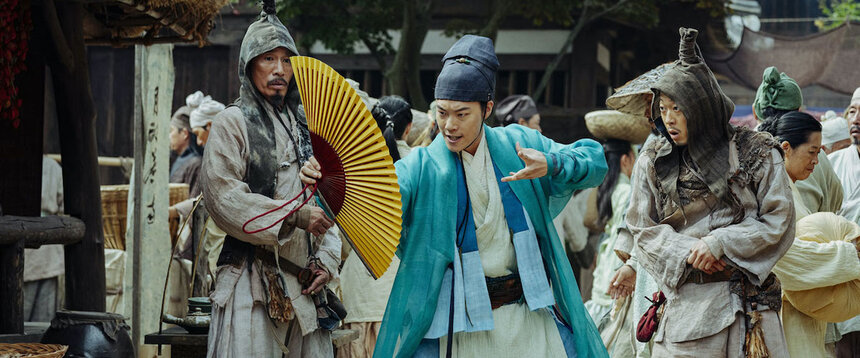
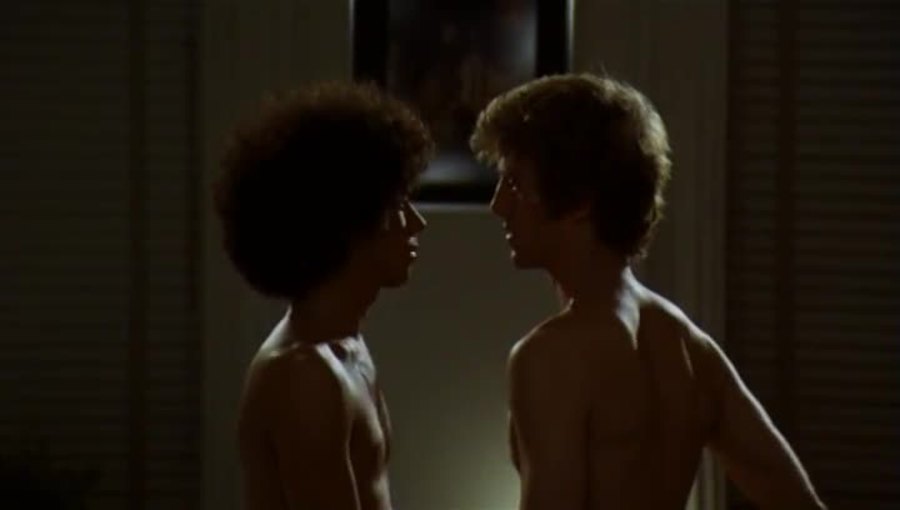
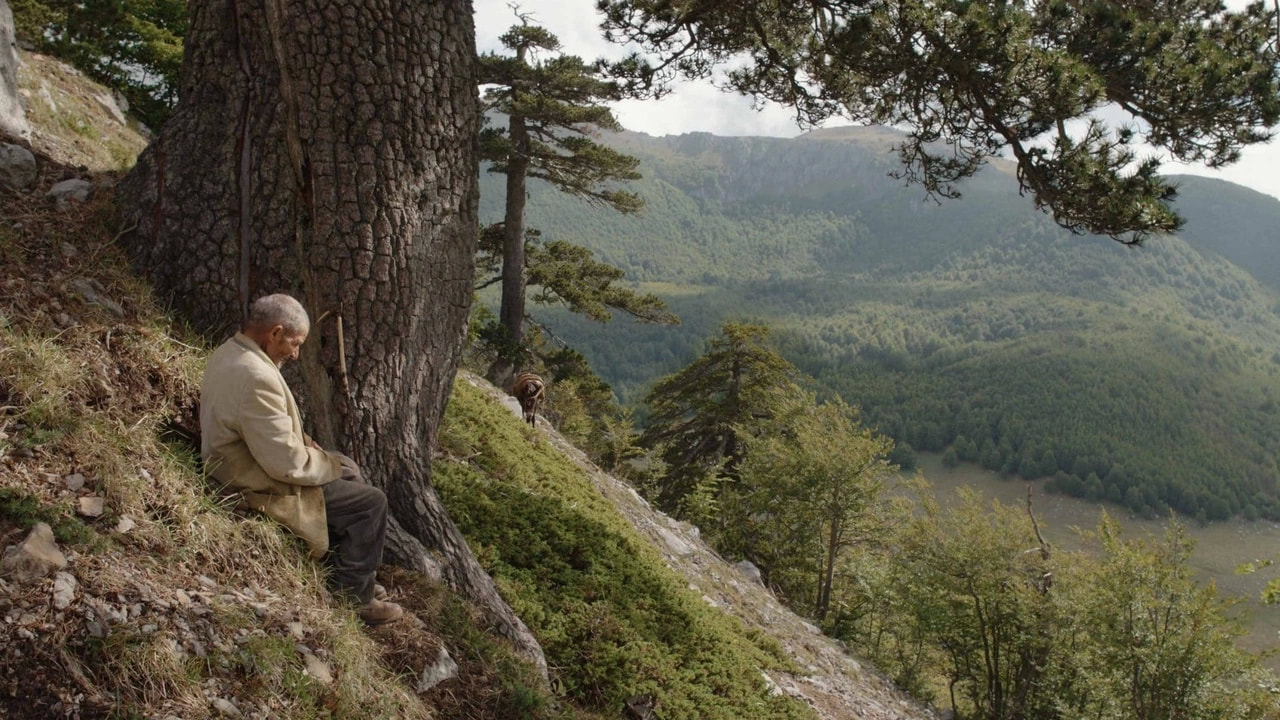
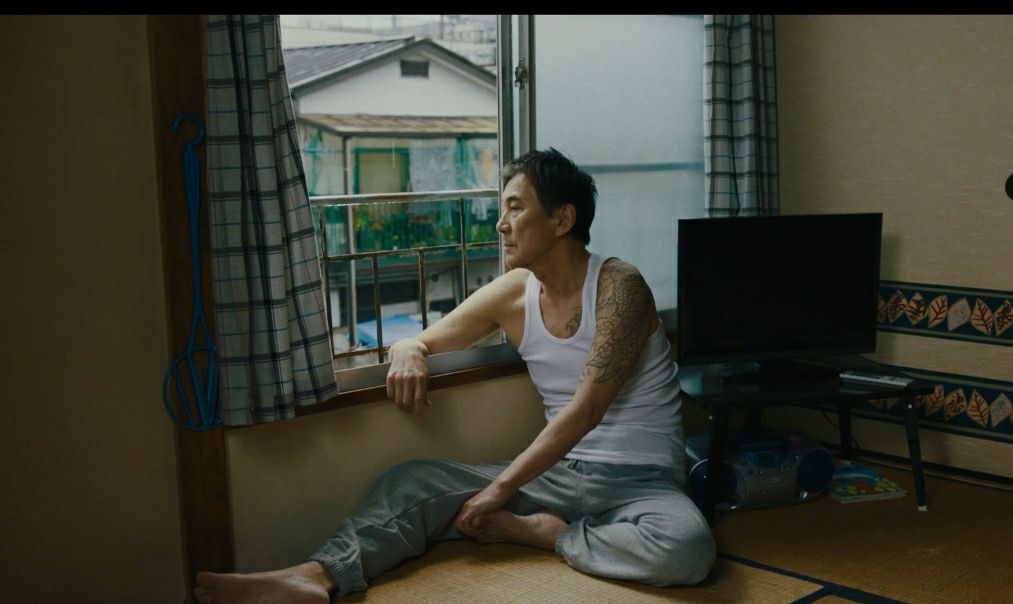
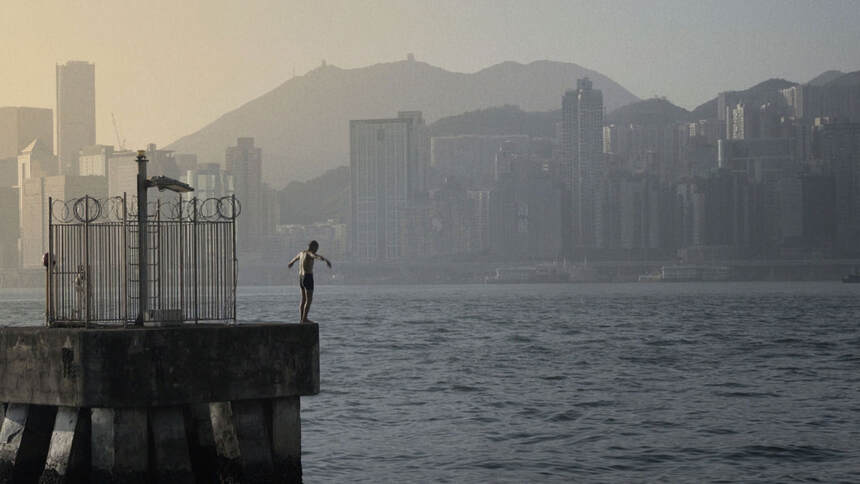
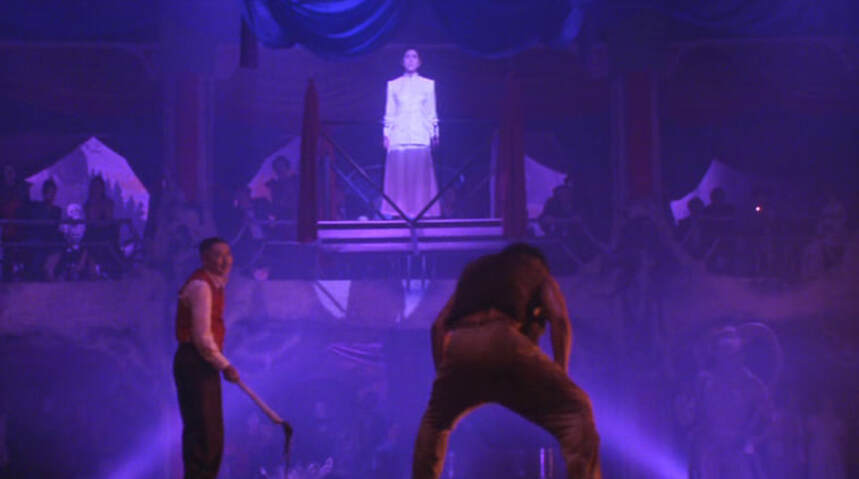
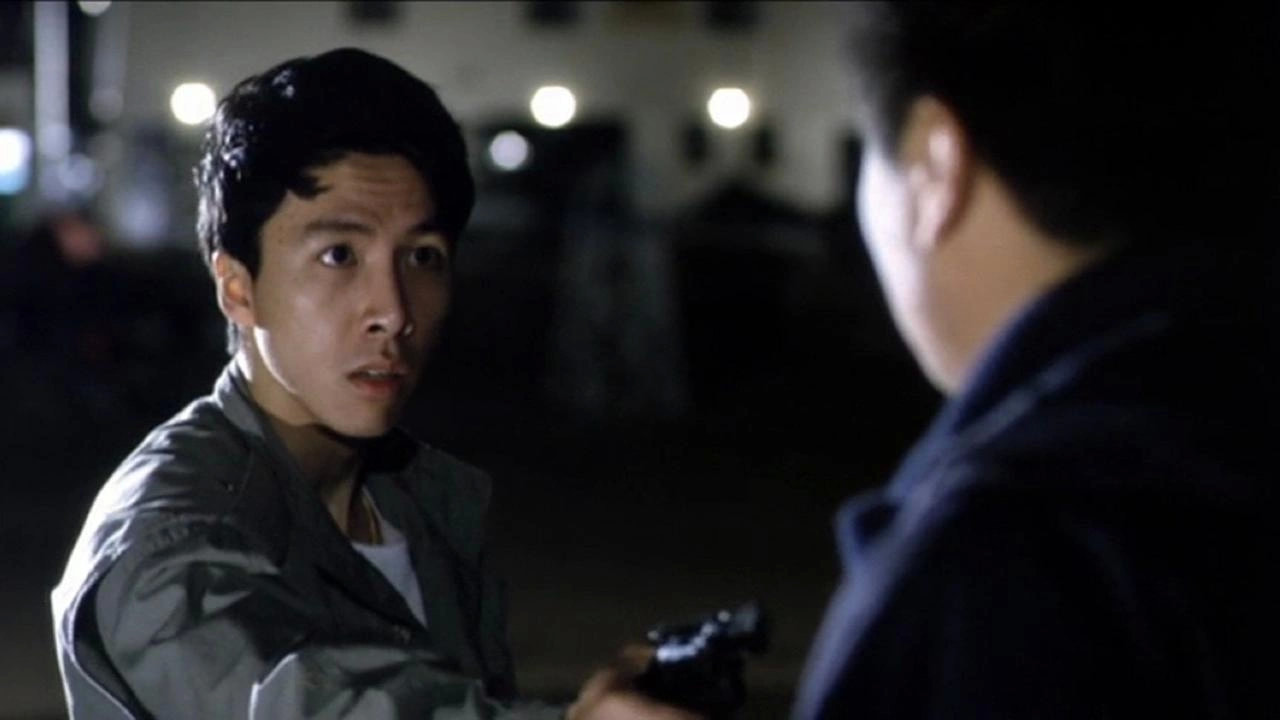

 RSS Feed
RSS Feed
